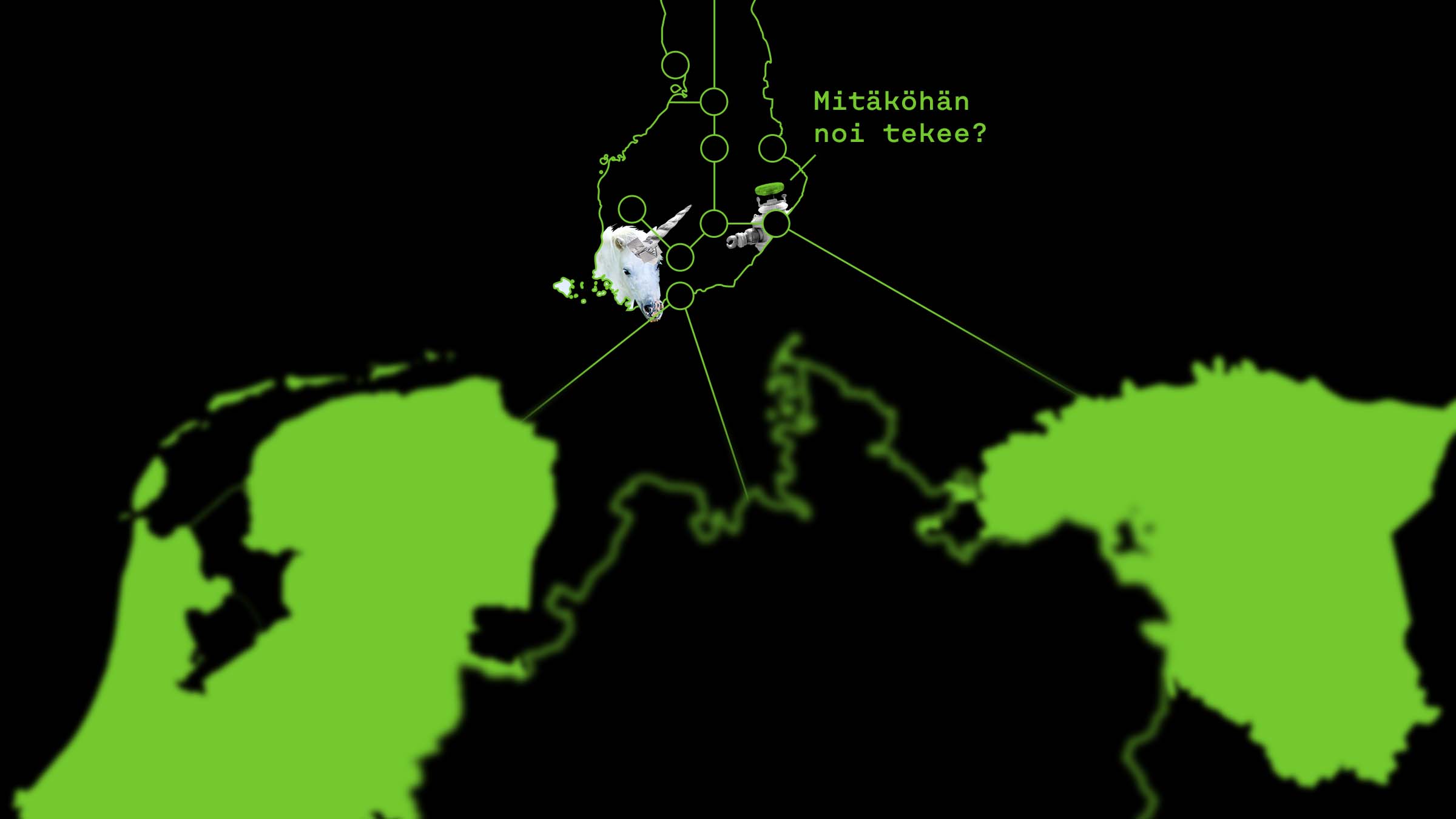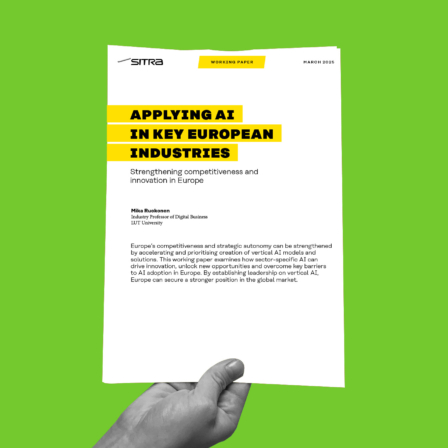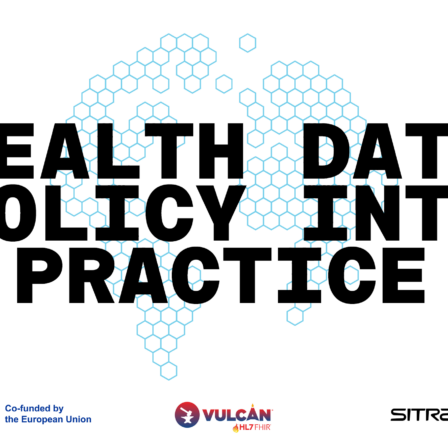Finland is lagging behind international developments where data and the information processed from it are revamping economies and competitiveness.
The projected growth in data market value in Finland is rather small compared to our digital capabilities, the conditions for doing business based on digital technologies, and Finland’s key peer countries.
For example, Sweden and the Netherlands are expected to double the value of their data markets to EUR 7–8 billion by 2025, while the forecast for Finland remains below EUR 1.5 billion, according to Sitra’s memorandum Suomen vahvuudet, haasteet ja mahdollisuudet datatalouden rakentamisessa – Mitä Suomi voi oppia datatalouden edelläkävijämailta? (Summary in English)
“Understanding the potential of data and harnessing its usefulness have a strong impact on companies’ financial success. In the future economy, the ability to use data will also affect the progress of digitalisation and the green transition. At the same time, the rights of people and companies in a digital world need to be agreed,” says Laura Halenius, Project Director at Sitra.
The memorandum is based on a study by Demos Helsinki on the current state of the data economy. The work was carried out together with companies, ministries, research institutes and organisations. The report compares Finland’s data economy outlook to that of the key competitor countries.
“We believe that by reviewing the strategies and measures chosen by Germany, the Netherlands, Sweden and Estonia, we in Finland can also learn something,” Halenius says.
Germany, for example, has allocated stimulus funds strongly to accelerating digitisation, while Finland and the other countries reviewed have devoted a much smaller share. Finland, Sweden and Germany suffer the most from a lack of data specialists.
Finland and Germany lag behind their peers in sharing data, both in practice and in vision. But Finland is ahead of almost all peer countries in developing the infrastructure needed to make use of data.
Strengths: trust and information society – weaknesses: fragmented measures
Of the countries reviewed, only Germany had its own data strategy. In Finland, the data economy is currently promoted through sector-specific strategies. Finland’s key data and technology policy plans of Finland have identified similar strategic goals, but their implementation is struggling.
Finland needs to find ways to hasten the building of the data economy to strengthen national competitiveness and generate prosperity through the better use of data.
The business potential of using data has been identified in manufacturing and B2B business in particular, but the SME sector is still in its infancy.
Finland’s strengths include a co-operative trust and information society, a high level of skills and a national will to succeed in the data economy. Weaknesses include difficulties in sharing responsibilities within society when the reforms needed to develop the data economy should be implemented effectively.
“The value of the data economy is well understood in Finland, and there is interest in it. But success in the data economy requires closer co-operation and dialogue between the different actors in society and more active leadership. Measures are promoted in too fragmented and inconsistent a manner,” says Kati Ahvonen, Senior Consultant at Demos Helsinki.
Linking data use to climate goals
Based on the interviews, workshops and an analysis of policy documents and country comparisons conducted for the memorandum, promoting the data economy in Finland will require at least the following measures:
- RDI funding must be strengthened and reformed.
- Data policy measures must be linked to the goal of carbon neutrality.
- Investments must be made in the development of the soft digital infrastructure.
- The effectiveness of EU-co-operation must be increased.
- New measures must be added to develop skills and strengthen understanding of the data economy.
- National coordination is needed to promote the development of the data economy.
What are then the most urgent matters that should be addressed in Finland now?
“The most urgent thing is to link the data economy to the achievement of the goal of carbon neutrality though long-term RDI funding and skills development, for example. RDI support for the carbon neutrality goal through the data economy will also promote data companies’ export opportunities, as other countries also want to achieve their own carbon neutrality goals,” says Ahvonen.
Based on the study, Sitra launched its Roadmap for a Fair Data Economy project in November 2021. This will build a roadmap for Finland through close public-private co-operation.






















Recommended
Have some more.